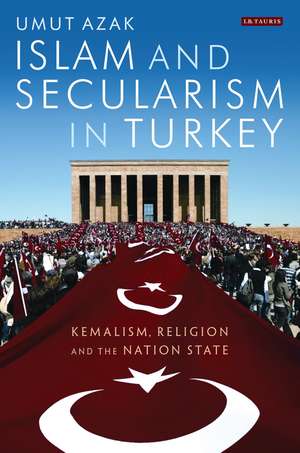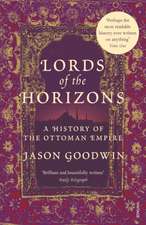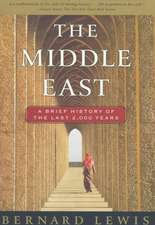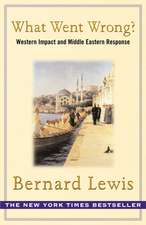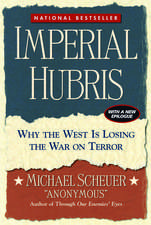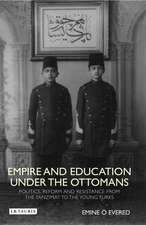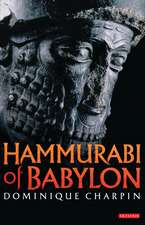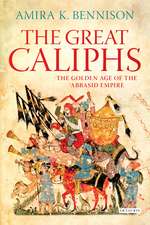Islam and Secularism in Turkey: Kemalism, Religion and the Nation State
Autor Umut Azaken Limba Engleză Hardback – 6 apr 2010
Preț: 714.56 lei
Preț vechi: 1027.67 lei
-30% Nou
Puncte Express: 1072
Preț estimativ în valută:
136.73€ • 142.76$ • 113.16£
136.73€ • 142.76$ • 113.16£
Carte tipărită la comandă
Livrare economică 05-19 aprilie
Preluare comenzi: 021 569.72.76
Specificații
ISBN-13: 9781848852631
ISBN-10: 1848852630
Pagini: 256
Ilustrații: 13 b/w integrated
Dimensiuni: 156 x 234 x 23 mm
Greutate: 0.48 kg
Editura: Bloomsbury Publishing
Colecția I.B.Tauris
Locul publicării:London, United Kingdom
ISBN-10: 1848852630
Pagini: 256
Ilustrații: 13 b/w integrated
Dimensiuni: 156 x 234 x 23 mm
Greutate: 0.48 kg
Editura: Bloomsbury Publishing
Colecția I.B.Tauris
Locul publicării:London, United Kingdom
Notă biografică
Umut Azak graduated in Political Science and International Relations at Bogazici University, Istanbul, and completed her PhD in the Department of Turkish Studies at Leiden University. She has taught and researched at Sabanci University, Leiden University, Utrecht University and the Institute for the Study of Islam in the Modern World (ISIM) in Leiden. She was 2008/09 fellow of the Berlin-based research program 'Europe in the Middle East - The Middle East in Europe' (EUME).
Cuprins
Introduction 1 Theoretical background2 Secularism with democracy3 Turkish Islam4 Turkish Islam and freedom of conscience5 Violent reaction: the Malatya Incident 19526 Creeping reaction: Said Nursi and his disciples7 Turkish Islam and AlevismConclusion
